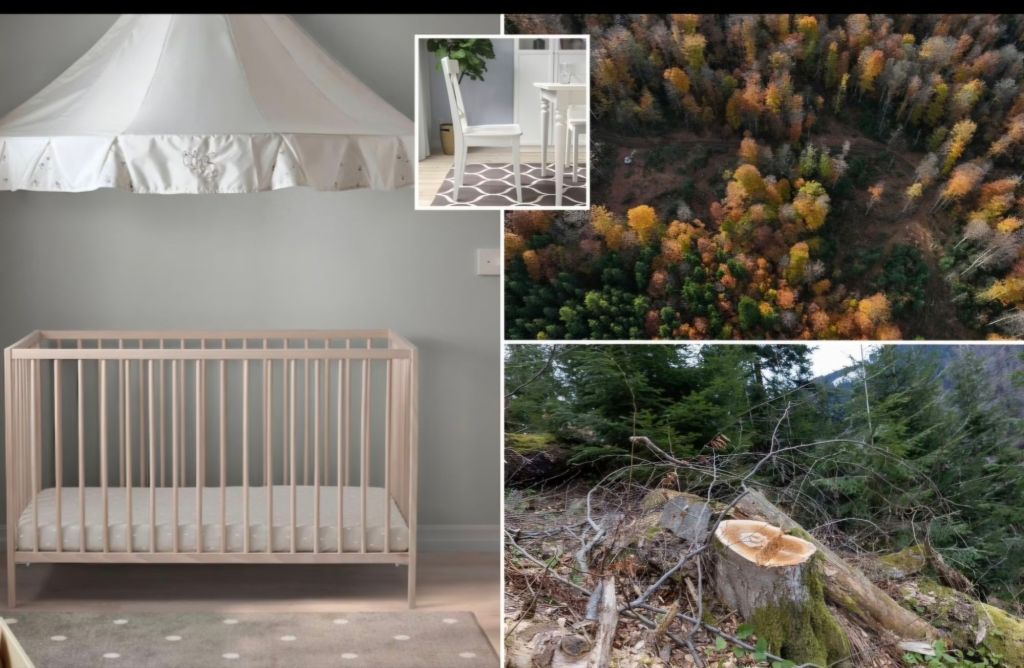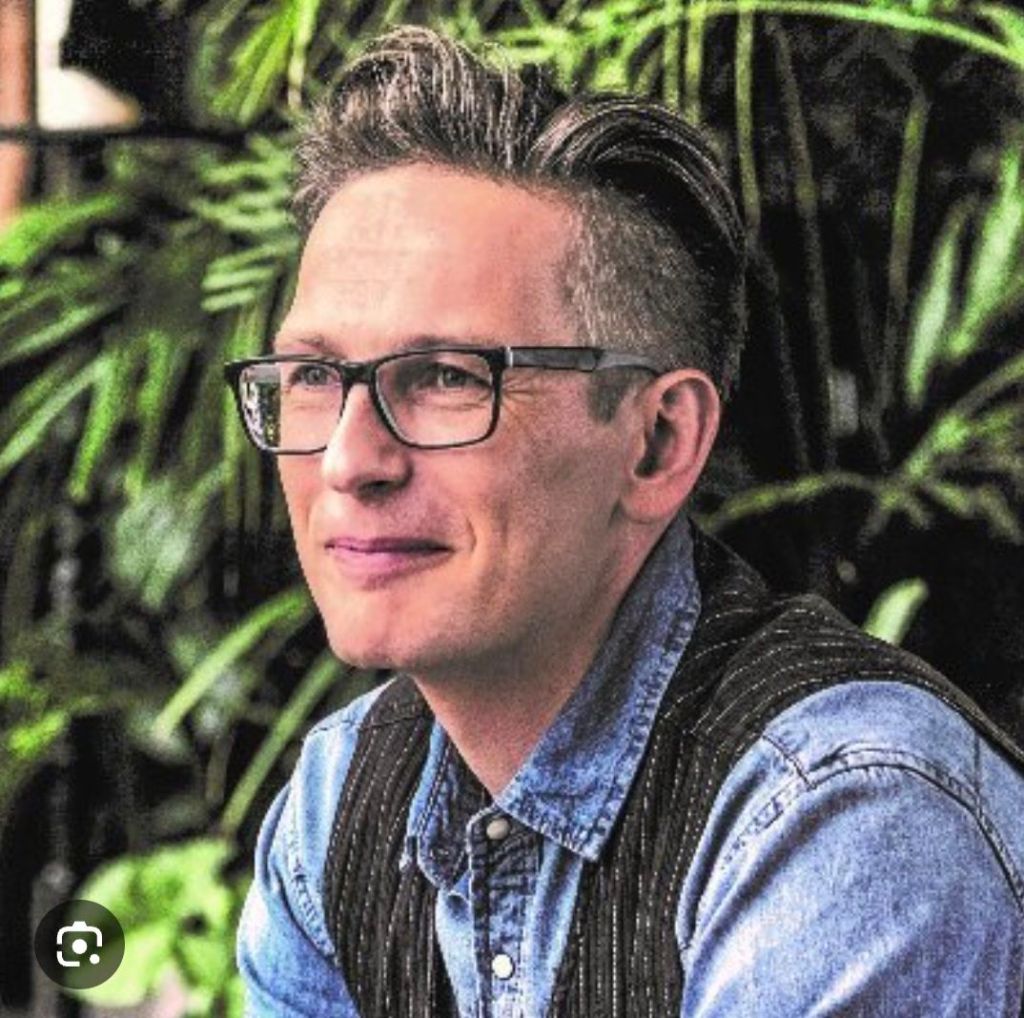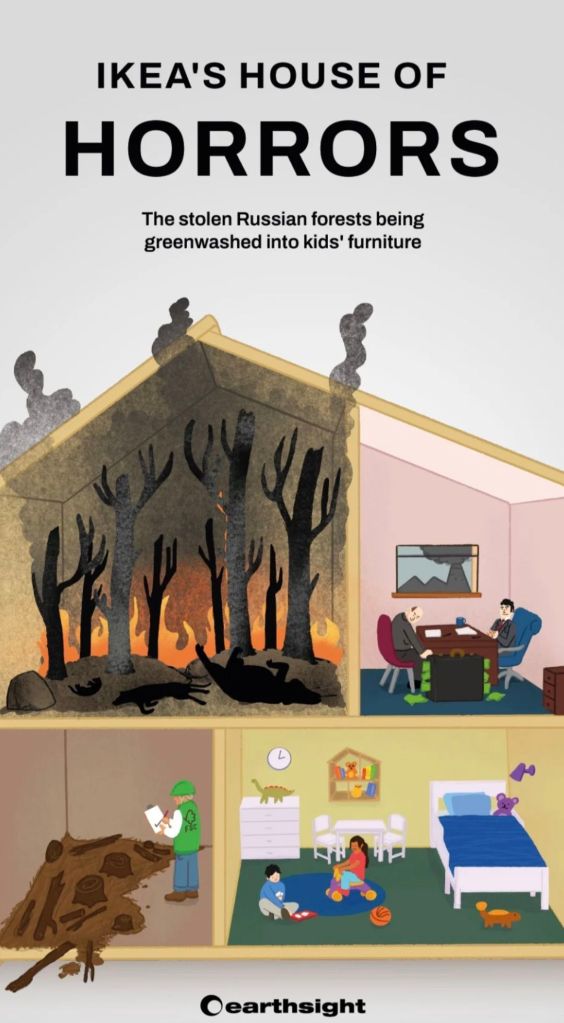
IKEA is sourcing woods from some of Europe’s last old-growth forests
Popular products include the INGOLF chairs and SNIGLAR baby cribs
IKEA furniture is destroying some of Europe’s last remaining ancient forests, according to a Greenpeace investigation.
Furniture manufacturers for the Swedish brand are sourcing wood from some of Europe’s last old-growth forests in the Romanian Carpathians, including in protected areas, their report has found.
This area is home to the largest European populations of brown bears, wolves and lynxes, as well as more than a third of all European plant species, and has survived unchanged since the end of the ice age.
But the investigation found that seven manufacturers producing IKEA’s all-time favourite products are linked to the destruction of these forests.
This includes the popular INGOLF chairs, and SNIGLAR baby cribs and beds for children
At least 30 different products from these suppliers were found in IKEA stores in 13 countries including France, Germany and the UK.
Investigation teams followed the supply chain by analysing permits and satellite imagery of logging sites in the forests in Romania to wood depots and furniture manufacturers, to where those products end up – on the shelves of IKEA stores.
Several manufacturers were found to be sourcing wood from high conservation value forests.
Based on publicly available information, IKEA is the biggest customer of products manufactured by most of those companies, implying a high likelihood that the problematic wood is ending up in IKEA furniture, Greenpeace said.

Robert Cyglicki, Biodiversity Campaign Director at Greenpeace Central and Eastern Europe, said: ‘Our nature heritage must not be turned into hangers or pieces of furniture.
‘Old forests are vital to the planet’s health and must be immediately protected. IKEA must live up to its own sustainability promises and clean up its supply chain from old-growth forest destruction.’
A spokesman for IKEA said: ‘We are currently going through the Greenpeace report in detail. We welcome a transparent dialogue and look forward to discussing the matter further once we have had a chance to read the full report.
‘We take information about the risk of violation of internal and external forestry requirements very seriously. Illegal wood and bad forestry practices have no place in the IKEA value chain.
Robert Cyglicki, Biodiversity Campaign Director at Greenpeace Central and Eastern Europe, said: ‘Our nature heritage must not be turned into hangers or pieces of furniture.
‘Old forests are vital to the planet’s health and must be immediately protected. IKEA must live up to its own sustainability promises and clean up its supply chain from old-growth forest destruction.’
A spokesman for IKEA said: ‘We are currently going through the Greenpeace report in detail. We welcome a transparent dialogue and look forward to discussing the matter further once we have had a chance to read the full report.
‘Any indication of this is immediately investigated. If we discover irregularities, we take immediate action, including terminating business relationships.’
In 2020, the NGO Earthsight found IKEA and others to be selling furniture made from wood illegally felled during “silent periods” in the forests of the Ukrainian Carpathians. The wood in question was certified by the Forest Stewardship Council (FSC) despite its sourcing.

In 2021, the NGO Earthsight alleged the use of illegally logged wood from protected forests in Siberia and the Russian Far East.
EARTHSIGHT’S KEY FINDINGS
* Ikea, the world’s biggest furniture retailer, has for years sold children’s furniture made from wood linked to vast illegal logging in protected forests in Russia, an Earthsight investigation has found. It is one of a number of western firms linked to the case.
* The brand’s popular Sundvik children’s range – which includes chairs, tables, beds and wardrobes – and Flisat doll’s house are among the items likely tainted with illegal wood. Earthsight estimates that shoppers have been purchasing an Ikea product containing the suspect Russian lumber somewhere on earth every two minutes.
* Using undercover meetings, visits to logging sites, satellite imagery analysis and scrutiny of official documents, court records and customs data, we traced wood furniture on sale in Ikea stores around the world to forests in remote Siberia. They’re controlled by companies owned by one of Russia’s top-50 wealthiest politicians, Evgeny Bakurov.
* Our year-long investigation found that Bakurov’s businesses broke numerous forestry and environmental laws. Illegal deals helped them harvest 2.16 million cubic metres of wood in protected forests over the last decade. Piled high, the logs produced would rival the Great Pyramid of Giza.
* Loggers felled millions of trees on the false pretext they were dead, dying, diseased or damaged – what’s known as sanitary felling. Sick trees are often used as an excuse to flout Russia’s logging laws.
* Bakurov’s pine was certified by the Forest Stewardship Council (FSC), the leading global scheme for sustainable wood products, and shipped to an Indonesian manufacturer which supplies Ikea stores in countries including the US, UK, Germany, France and other European countries. Bakurov also supplied the retail giant through middlemen in Russia and China.
Bakurov’s tainted wood is also in many other supply chains heading to Europe and the US, aside from Ikea’s. A majority of the EU’s imports from eastern Russia are potentially contaminated.
* Earthsight holds FSC largely responsible for the logging abuses linked to Ikea and other retailers we connected to the scandal. They rely on the green label and its competitor PEFC to ensure their supplies are sustainable and legally sourced. Our findings provide further proof that this trust is wildly misplaced.
* FSC audits did not mention the rampant illegal logging documented by Earthsight and Russian authorities. Instead, high-risk wood continued to be sold in Ikea stores year after year.
* The findings show that governments in the US and Europe must enforce timber import laws more rigorously to address their roles in driving global deforestation.
* Ikea, which denies wrongdoing, announced a temporary ban on sanitary felled wood from Siberia and the Russian Far East after Earthsight got in touch. The retailer insists Bakurov’s wood was “legally harvested” – but recently dropped his companies as suppliers, citing unspecified “practices of concern”.